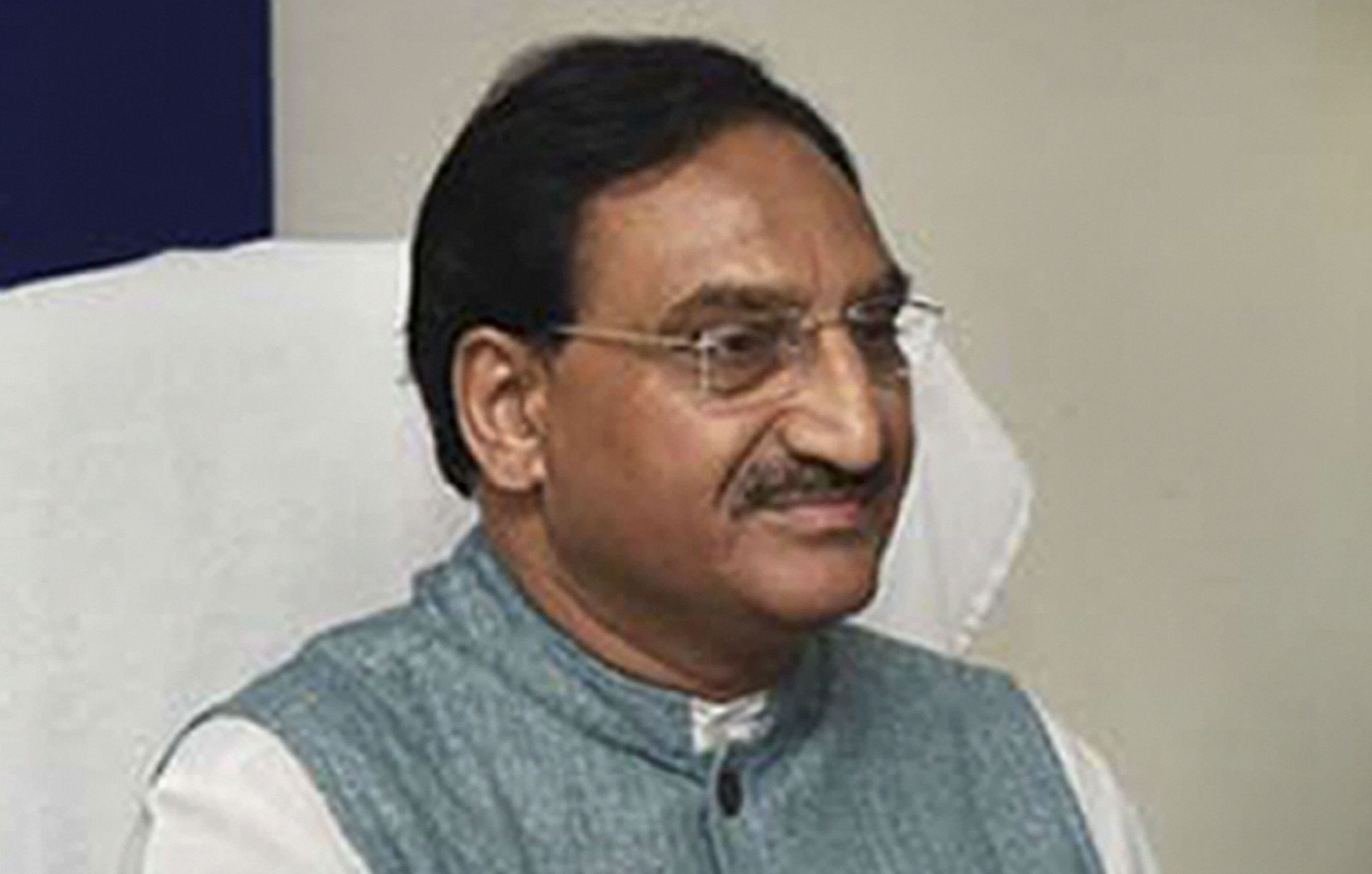
HRD minister launches draft ‘Industry Guidelines on Digital Learning’
The draft ‘Industry Guidelines on Digital Learning’, developed by the UNESCO and Delhi-based MGIEP, was launched at a ministerial roundtable in Paris by Union HRD Minister Ramesh Pokhriyal on Friday (November 15).

The draft ‘Industry Guidelines on Digital Learning’, developed by the UNESCO and Delhi-based MGIEP, was launched at a ministerial roundtable in Paris by Union HRD Minister Ramesh Pokhriyal on Friday (November 15).
The draft guidelines have been developed in response to the Vizag Declaration on digital learning adopted at TECH 2018, an international conference organised by the UNESCO, Mahatma Gandhi Institute of Education for Peace and Sustainable Development (MGIEP) and the Andhra Pradesh government, reported news agency PTI.
Also read | State boards may lose autonomy under new National Education Policy
On the occasion of the 40th UNESCO general conference in Paris, the roundtable was jointly organised by the governments of Finland and India, in partnership with UNESCO and MGIEP. The roundtable was on Media and Information Literacy and Games in the Digital World.
Speaking at the occasion, the union minister said, “Today, there is an urgent need to create digital learning solutions. We need to find solutions of this type that prepare students for a rapidly changing global environment.”
He also expressed his happiness that MGIEP and Samsung have set up a gaming bar that will provide information in the areas of education, communication and information.
MGIEP director Anantha Duraiappah said that the institute is “India’s contribution to transforming the educational landscape globally, with key work areas including digital pedagogies for Social and Emotional Learning (SEL) for K-12.”
Also read | Telangana school enrollment drops; teachers, ‘free education’ nowhere in sight
“Samsung and MGIEP are working on a research study called ‘MyDream’ to enhance learning outcomes for middle school students in India and to study how their curriculum stress can be reduced,” he added.
UNESCO and MGIEP will also deliver 200 hours of course curriculum that is being developed for the Andhra Pradesh government under ‘Teaching Teachers for Technology’ for smart classes being set up at 14 government colleges in the state which offer B.Ed and D.Ed degrees.
The primary purpose of these digital learning guidelines is to help the emerging digital learning community develop effective solutions that will be in-line with sustainable development goals (SDG) 4, and the societal and economic needs of the 21st century.
These common guidelines have been envisioned to help teachers, parents and end-users of digital learning solutions evaluate and compare the overall quality, relevance and learning outcomes of the multiple applications and services at their disposal so that they can make informed choices.
(With inputs from agencies)

